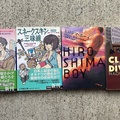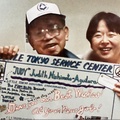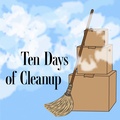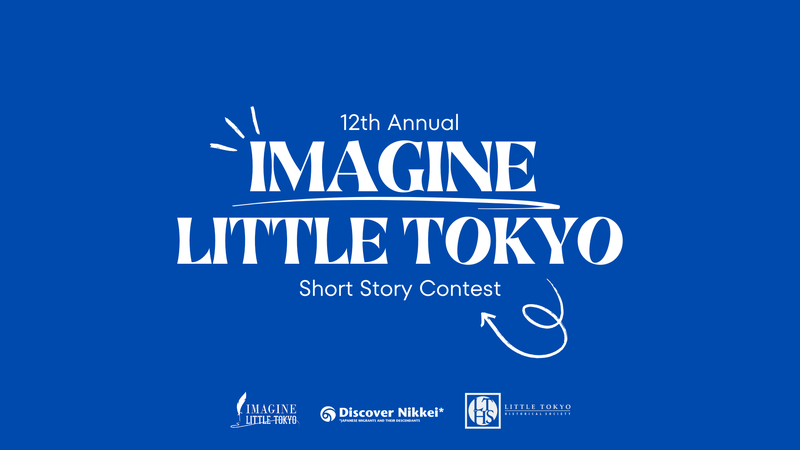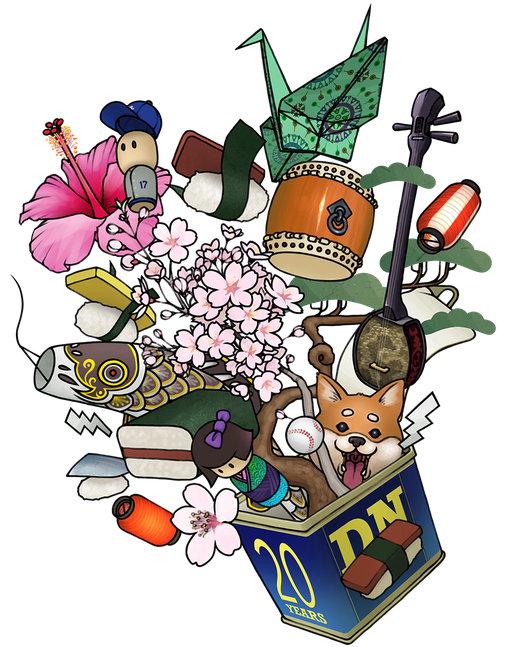Chapter 3 >>
Phyllis Hamakawa felt the scent of the incense wash over her as the Buddhist priests chanted, groaning almost like summer cicada. The whole sanctuary in the new church seemed to pulse as the line of black-suited people, friends and strangers, either embraced her or bowed in front of her. A few feet away was Baa-chan in her oak casket, her hands, speckled with age spots, carefully arranged as if she were clasping them together. She was in her favorite gray dress. A woman my age should never wear bright colors, Baa-chan would say to Phyllis whenever she brought gifts of a red and orange muffler or a baby blue sweater. That’s old world thinking, Phyllis would reply back. But I’m old world, Baa-chan insisted. They would end their debate on fashion with some of Baa-chan’s good strong green tea and manju from the Japanese confection shop from the north side of Toronto.
But for Baa-chan’s last appearance, Phyllis brought the gray dress to the mortuary two days before. It was proper. It was what she would have wanted. The food poisoning had ended Baa-chan’s life in such a traumatic, messy, undignified manner. Order needed to be restored, even in death.
The rest of the afternoon was a blur. There was a reception in the meeting hall with another swirl of people attempting to comfort her in between bites of makizushi and fried won-ton.
“She had a good, long life.”
“The mortuary did such a wonderful job on her.”
“So, so many people. She was so well loved.”
Phyllis just wished that her daughter Cassandra was by her side. She was on a business trip in Paris—her first. Cassandra told her mother that she’d fly back home, but Phyllis talked her out of it. “Come for the memorial service, that will be enough,” Phyllis had said. But she had lied. That wouldn’t be enough.
“I’m so sorry for your loss, Phyllis.”
“Terry.” Tears sprang to Phyllis’s eyes but she blinked them back. She hadn’t seen him in the funeral receiving line, which wasn’t a surprise. Ever since he had announced his resignation from the council, they had kept their distance. The local press smelled scandal and it would not help his case or his marriage if they were seen together.
Terrence Spicer was careful not to touch Phyllis, and she was grateful for it.
“Thanks for coming,” Phyllis said, and she meant it.
“I know that you two were so close.”
The tears were spilling down her cheeks now, and Phyllis could only imagine what it was doing to her eye makeup. She took out her package of tissues and tried to clean up her face.
“It was a beautiful service. Baa-chan would have been very happy.” Another man joined them, and for a moment, she didn’t know who he was. He had lost his goatee years ago and looked as respectable as his position.
“Terrence Spicer, Dr. Adrian Block.” My ex and Cassandra’s father, Phyllis thought to herself. No need to get into personal details here.
“Familiar with your work on the council, sorry to lose you,” said Adrian. How did he get so comfortable with small talk? Phyllis wondered, remembering the early years of their marriage when Adrian stood sullenly by himself in a corner of one of her law school parties, sucking down one Molson after another.
“Ah, yes, well, I have another appointment, so I need to go. I’ll call you, Phyllis,” Terrence said and then disappeared into the crowd.
“Your boyfriend is good at fast getaways.”
It didn’t take long for Adrian’s true personality to emerge. “Why are you here, Adrian? You and Baa-chan never got along.”
“Cassandra asked me to make an appearance, to see how you were.”
“Well, you see and now you can go.”
“And I wanted to give you this.” He handed a small white card to Phyllis.
“Your business card?”
“Look on the other side.”
A name and phone number, handwritten in Adrian’s crazed scrawl. Judging from the phone number’s prefix, it was somewhere in the States. “One of your girlfriends?”
“She called the office. Knew that I was on the city’s public health commission. She was asking me questions about the strawberries and our recent rash of food poisoning. She wanted me to send her some infected strawberries. I thought that she was wacko, but then I got suspicious. Did some Internet research after her call. Her family actually owns a strawberry farm in California. Don’t know if it has anything to do with anything—”
“Thank you, Adrian,” Phyllis said and she meant it. She studied the name again—Sayuri Shishido. If this woman had anything to do with Baa-chan’s death, there would be hell to pay.
***
Bob and Greg Shishido were sitting at their respective desks when the bungalow door opened, shaking the flimsy particle wood walls.
“Boss, Greg, here’s the guy I wanted to introduce you to—Jorge Yamashita.”
The man standing next to their foreman Zip was Asian, but didn’t look like the ones in Oxnard, California. His skin was dark and weathered and he wore his salt-and-pepper hair flat and shapeless, no hair products in evidence. He had bushy eyebrows and a heavy mustache.
Bob was the first to rise. “Jorge, heard so much about you from Zip.” He extended his hand and was glad to feel calluses on the stranger’s hand. This was a working man, a man who was apparently trained academically yet was not afraid to be out in the fields. “Heard you came to us from—”
“Paraguay. Next to Argentina and Brazil.” Jorge spoke haltingly; he obviously wasn’t that comfortable in English.
“You can practice your Spanish, boss. He speaks Japanese too.”
“My Spanish is better than my Japanese.” Bob laughed. “This is my son, Greg. He’s married to a Japanese woman. Studied some Japanese in college and even taught English in Tokyo.”
“Hajimemashite,” said Greg. That was really the extent of his Japanese. He and Sayuri mostly spoke English at home.
“So, you studied horticulture in Latin America,” said Bob.
“I have my own farm. Mostly soybeans. About ten acres of strawberries.”
“Ten acres? That’s a respectable size. I remember when my grandfather started up in strawberries in this country he only had a couple of acres. But you could make a lot out of nothing in those days.”
Greg noticed Jorge’s face stiffen for a moment and then he seemed to force a smile. “My foreman is taking care. But I want to learn from here, California. Where it all started.”
“He’s also initiated a breeding program in Paraguay,” explained Zip. “Since our guy left, maybe Jorge can help us out.”
“We use university berries, but they are always looking to growers to beta test new varieties,” said Bob.
“I would be very happy to help.” Jorge seemed happy to accept the offer, almost too happy, noted Greg. The two men then left for lunch, leaving Greg alone with his father.
“Do you think that’s a good idea, Dad?”
“What do you mean?”
“You don’t know much about this guy.”
“Zip checked him out. His papers and everything are in order.”
“I don’t know. There’s just something about him—"
“What? Strange.”
“No.” Greg attempted to find the right word for his hunch. “Familiar.”
***
“Aaaa-----!”
The screaming was so loud it made Haru’s body tremble. Mama was dying, disappearing, and she wasn’t doing anything to stop it.
“Haru-chan, Haru.” Haru opened her eyes. It was Mama. Alive. Healthy. Even a little chubby in her nightgown.
“Another bad yume, ne.” Mama held Haru up to her chest. “I can even feel your heart beating. Was it the same one?”
Haru nodded. She had told Mama that she had a nightmare of a dog chasing after her. It was a silly thing to say. But Haru couldn’t bear to say the truth, that she was still haunted by the day her mother had given birth to her baby brother.
There was the screaming from the other room. They had no doors in their house, which was basically a wooden shack. So the midwife and Papa had hung heavy wool blankets over the opening into Mama and Papa’s bedroom. That shielded Haru from images of the birth. But not the sounds.
Mama never yelled, never raised her voice beyond a gentle reprimand, and now she was wailing. Haru didn’t know such sounds could come out of her mother and it frightened her. Was her mother transforming into a monster? Would producing another child forever estrange them? Or even worse, would this new baby steal her mother’s life?
Haru hadn’t gone to church that often, only getting some religion when a traveling priest set up a tent on the outskirts of their friends’ strawberry farm. She believed in God, though. Who else could make the plants grow so strong and taste so good? She didn’t know how to pray, but thought God could read her mind. God could do that, right? He would know how gentle and sweet Mama was, how Haru needed her to comb her hair and make her okayu when she got sick. She felt so guilty now of always telling her parents that she wanted another brother or sister. Most of all of the other Japanese friends had three, four siblings. Their houses were full, noisy and alive. Haru was tired of being so lonely. And now because of her selfishness, Mama might die.
“Gambatte, Shishido-san.” Haru heard the midwife say. Mou sukoshi, mou sukoshi. A little more, a little more.
And then another crying voice. A soft-pitched one. A baby’s. But Mama was still screaming. Haru wanted to tear down the wool blanket curtain and rescue Mama. But she knew Papa would be angry. So would Auntie Himeko. They were both helping the midwife. Haru didn’t want to be a further burden. She dug her dirty fingernails into the sides of her arms. When would this nightmare end?
Then, magically, Mama’s screaming stopped. A baby still cried, and then Haru heard the pouring of water.
There was whispering. The midwife’s voice. Papa’s. And then auntie’s. “Futago,” Haru heard. What did futago mean?
Mama called out for her baby, and Haru, for a second, felt jealous. She’s alive, she told herself. That’s all that mattered.
The midwife was the first to appear from behind the blanket curtain. She was holding a bundle wrapped in cloth, and Haru stepped forward, wanting to know if that was her new baby brother or sister. The midwife then noticed her and turned, revealing her full-length apron soaked in blood. Haru felt faint. She had not seen that much blood before—well, maybe when their pig was slaughtered. But human blood?
The midwife put a blood-stained finger to her lips and got into her coat without removing her apron.
Something was wrong, Haru felt.
The midwife then went out the door before Haru could ask her anything more.
“Haru-chan,” Auntie Himeko then appeared. A nervous, cloying woman, she usually got on Haru’s nerves, but Haru was glad to see her right now.
“Is Mama alright?”
“Yes, yes.”
“Is it a boy?”
Auntie Himeko’s eyes began to water. “Yes, a boy. You have a baby brother. Let me get changed now.”
“Auntie Himeko—”
“Yes,” Auntie Himeko waited.
“What does futago mean?”
“Twins,” she gasped, her face dissolving into tears, before she left for the furo in the back of their house.
“Twins?” Haru thought. But Auntie Himeko only mentioned a baby brother. Then the bundle carried by the midwife—it must have been the other twin. The twin who must have died. Haru ran outside the door to look for the midwife. She was in the passenger side of a black Model-T that was leaving the ranch. And before the automobile turned towards the dirt road, Haru could have sworn that the driver was Uncle Saburo, Papa’s brother.
* “The Nihongo Papers” is a work of fiction. The characters, incidents, and dialogue are drawn from the author’s imagination and are not to be construed as real. Any resemblance to actual events or persons, living or dead, is entirely coincidental.
© 2007 Naomi Hirahara



